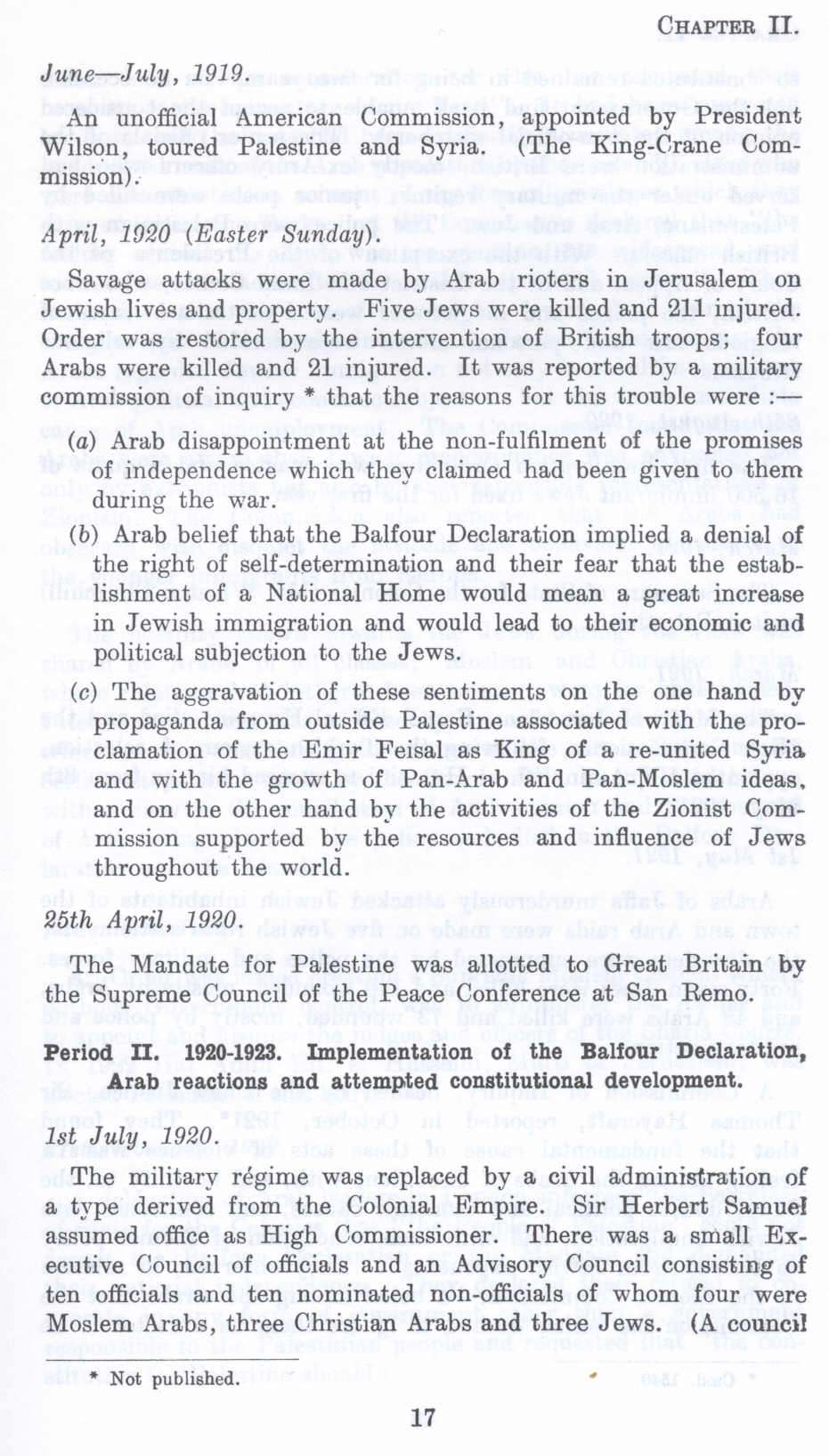| Prev | Next |  |
| Prev | Next |
| PalestineRemembered | About Us | Oral History | العربية | |
| Pictures | Zionist FAQs | Haavara | Maps | |
| Search |
| Camps |
| Districts |
| Acre |
| Baysan |
| Beersheba |
| Bethlehem |
| Gaza |
| Haifa |
| Hebron |
| Jaffa |
| Jericho |
| Jerusalem |
| Jinin |
| Nablus |
| Nazareth |
| Ramallah |
| al-Ramla |
| Safad |
| Tiberias |
| Tulkarm |
| Donate |
| Contact |
| Profile |
| Videos |
Historical Summary, 1920. Period II: 1920 - 1923 Implementation of the Balfour Declaration, Arab reactions and attempted constitutional development in Palestine. British Mandate: A Survey of Palestine: Volume I, Chapter II - Page 17 |
Disclaimer
The above documents, article, interviews, movies, podcasts, or stories reflects solely the research and opinions of its authors. PalestineRemembered.com makes its best effort to validate its contents.


Post Your Comment
*It should be NOTED that your email address won't be shared, and all communications between members will be routed via the website's mail server.
June-July, 1919.
An unofficial American Commission, appointed by President Wilson , toured Palestine and Syria. (The King-Crane Commission).
April, 1920 (Easter Sunday).
Savage attacks were made by Arab rioters in Jerusalem on Jewish lives and property. Five Jews were killed and 211 injured. Order was restored by the intervention of British troops; four Arabs were killed and 21 injured. It was reported by a military commission of inquiry * that the reasons for this trouble were :-
(a) Arab disappointment at the non-fulfillment of the promises of independence which they claimed had been given to them during the war.
(b) Arab belief that the Balfour Declaration implied a denial of the right of self-determination and their fear that the establishment of a National Home would mean a great increase in Jewish immigration and would lead to their economic and political subjection to the Jews.
(c) The aggravation of these sentiments on the one hand by propaganda from outside Palestine associated with the proclamation of the Emir Feisal as King of a re-united Syria and with the growth of Pan-Arab and Pan-Moslem ideas, and on the other hand by the activities of the Zionist Commission supported by the resources and influence of Jews throughout the world.
25th April, 1920.
The Mandate for Palestine was allotted to Great Britain by the Supreme Council of the Peace Conference at San Remo.
Period II. 1920-1923. Implementation of the Balfour Declaration, Arab reactions and attempted constitutional development.
1st July, 1920.
The military regime was replaced by a civil administration of a type derived from the Colonial Empire. Sir Herbert Samuel assumed office as High Commissioner. There was a small Executive Council of officials and an Advisory Council consisting of ten officials and ten nominated non-officials of whom four were Moslem Arabs, three Christian Arabs and three Jews. (A council
_______
* Not published.
Page 17